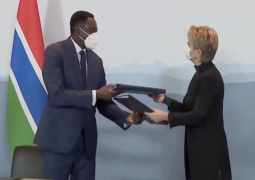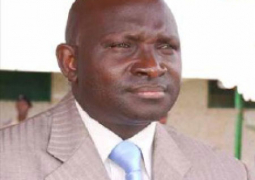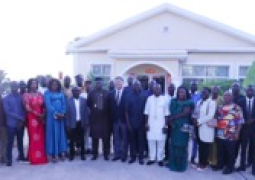
Speaking during the launching of the ‘Permian Health Clean Air Initiative’ which aims to highlight the importance of air pollution and its impact on human health, she said: “Women engaged in agricultural activities, fish processing, and other occupations are at an increased risk of developing poor health outcomes due to occupational exposures to pollutants.”
“These occupational hazards pose threats to their respiratory health, as well as their overall well-being. It is imperative that we recognise and address these gendered impacts of occupational air pollution.”
Moving forward, she said, household air pollution (HAP) is one of the leading sources of exposure to fine particulate matter (PM2.5), carbon monoxide (CO), and other air pollutants. This, she added, occurs during the incomplete combustion of biomass fuels during cooking, which predominantly affects women, especially those in rural areas.
The renowned women’s right activist said to effectively tackle air pollution in the country, it is crucial that women participate in decision-making processes.
According to the World Bank collection of development indicators, population ages 15-64, female (% of female population) in Gambia was reported at 55.06 % in 2022.
However, an important number of the women are into domestic works and other activities that expose them to air pollution such as cooking, fish smoking, gardening and others.
Thus, the activist said: “Women must be given the space and the voice to speak about their lived experiences and contribute their expertise to finding solutions. As primary caregivers for children, no effort to improve child health or protect children from air pollution will succeed without their active involvement.”
Dr. Touray said air pollutant issues must be approached using data and scientific methods, complemented by social sciences and anthropological methods.
“By understanding the context and specific challenges faced by women in different occupations, we can craft context-appropriate interventions that target at-risk groups, such as those involved in fish processing,” she said.
The former Vice President advised that there is a need for the country to establish standards and legislation for domestic energy sources, adding clean stoves that are affordable and accessible must be promoted, while discouraging the use of fossil fuels and wood.
He said by embarking on cleaner energy, the Gambia can reduce household air pollution and its detrimental effects on women's health.
“Undoubtedly, there are many challenges ahead of us. However, it is essential to remember that it is possible to make significant progress in improving lung health in The Gambia by empowering women, involving them in decision-making processes, and implementing effective interventions,” she said, adding “We can make The Gambia a pioneer in this field.”
In conclusion, she called on all and sundry to work collaboratively in addressing the gendered impacts of occupational air pollution and create a healthier future for all women in The Gambia.




